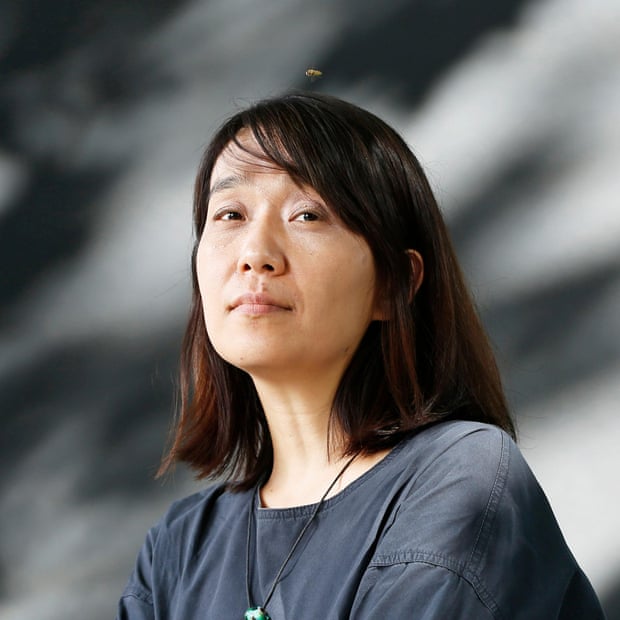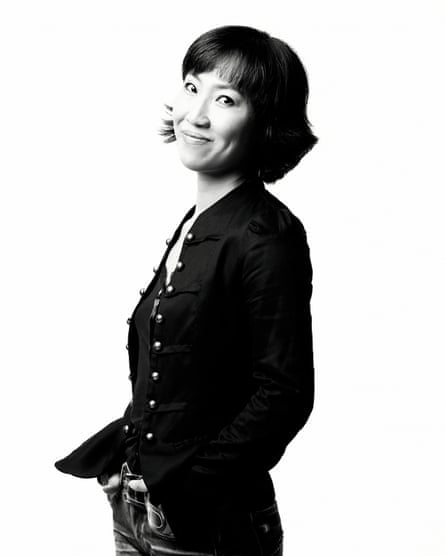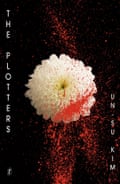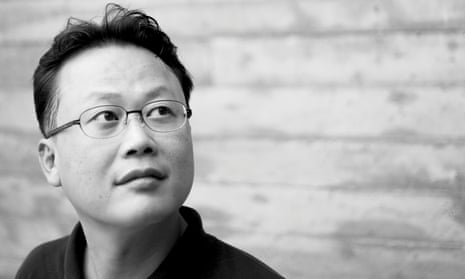Last December, Korean novelist Un-su Kim set out on an eight-month deep-sea fishing trip as part of research for his next book. Unreachable by phone or email until next August, when his boat docks in Fiji, he has no idea that his thriller The Plotters has been the subject of a wildly enthusiastic auction in the US, where it recently sold to Doubleday for a six-figure sum. German publisher Europa Verlag has called Kim “the Korean Henning Mankell”, while publishers in the UK, Czech Republic and Turkey have placed offers, and international film companies are also battling for rights.
His agent, Barbara Zitwer, who plans to meet him in Fiji to reveal the news, believes Kim’s novel, about an organisation that masterminds assassinations, has caught a wave of interest in Korean thrillers – a previously unknown quantity. “The world is finally embracing them. Korean thriller writers are invigorating the genre,” she said. “They are pumping new life into it. Readers are tiring of Scandinavian thrillers – they crave something new.”
Quick GuideDon't know where to start? Four Korean authors you must read
Show

Human Acts by Han Kang
This gripping account of the brutal suppression of student riots in the South Korean city of Gwangju in 1980 was the second of Han’s novels to be published in the UK (after her prize-winning novella, The Vegetarian). Han’s fans include the human rights lawyer and author Philippe Sands, who described Human Acts as “an intense and magical achievement – a brutal yet lyrical reflection on the universal legacy of injustice seen through the prism of one act of atrocity”.
Familiar Things by Hwang Sok-yong
For decades Hwang has been producing powerful political novels failed to reach beyond small university presses in the US, so publication of this novel in 2017, in a translation by Sora Kim-Russell, was richly deserved. It examines the darker side of modernisation through the micro-society of a rubbish dump. “Hwang challenges us to re-evaluate the cost of capitalism, to see what and who we have left behind,” wrote reviewer Kris Lee.
The Hen Who Dreamed She Could Fly by Hwang Sun-Mi
Charming bestselling crossover fable of female empowerment and mother love involving a plucky hen named Sprout, who decides to escape the henhouse – and the abusive farmer who steals eggs and slaughters birds who can no longer lay – to hatch a chick of her own in the dangerous freedom that lies beyond the farm.
Moss by Yoon Tae-Ho
Manwha is South Korea’s best-kept secret – comic strips that young people read obsessively on their phones – and Yoon is one of its superstars. In the beautifully drawn Moss, a young man finds himself pursuing dangerous truths in the town where his estranged father recently died.
Korean writing can seem new to English readers due to the unique cadence and economy of the language; translator Deborah Smith described the process of changing Korean to English as “moving from a language more accommodating of ambiguity, repetition and plain prose to one that favours precision, concision and lyricism”. There is no grand tradition of mystery writing in Korea. Writers there are creating something entirely new: sparsely worded, stylistically sophisticated page-turners that incorporate ideas important to Korean society, such as family, loyalty, nature and hierarchy.
Other genre books by Korean authors include You-jeong Jeong’s third novel, The Good Son, due out in the UK this May, followed by JM Lee’s latest, The Gospel of the Murderer, about a series of killings in Jerusalem just before the crucifixion of Jesus.
Interest in the country’s literature has boomed over the last decade, according to research by the Man Booker International prize, gathered after Korean author Han Kang won for her novel The Vegetarian. Sales of Korean books have increased from only 88 copies sold in the UK in 2001 to 10,191 in 2015, while the number of titles translated into English has doubled over the last five years, from 12 in 2013 to 24 in 2017.

The Booker report attributed the growth to the 2014 London book fair’s focus on South Korea, but Ailah Ahmed at Little, Brown, who is publishing Jeong’s The Good Son, said Kang’s triumph also drew attention to Korean fiction. “I feel Korean literature is having a moment,” she said. “Psychological thrillers are really popular, and maybe the market is saturated. I thought it would be interesting for readers from the UK to read a genre they knew but from a world and a society they were not familiar with.”
The Good Son, translated by Chi-Young Kim, tells the story of a seemingly perfect student, who wakes up covered in blood, with the body of his mother downstairs. “He knows he is the suspect, so he decides to hide the body and solve the crime himself,” said Ahmed. “It felt really fresh.”
Despite interest abroad, Zitwer said that in Korea “thrillers are considered second-class citizens”. Lee told her that thriller writers “aren’t even considered writers in Korea – they are called storytellers”. On a visit to a London bookshop, he was shocked to see John Banville’s books side by side with Banville’s Benjamin Black books, said Zitwer: “That is unheard of in Korea. A great writer like Banville would never write under another name and write thrillers, then tell the world about it.”
In the past, Korean literary competitions have preferred “highly literary work”, said Jeong, author of The Good Son. “Writers who win the contests generally have studied creative writing or literature – they belong to the same networks. So naturally there aren’t many authors in Korea who write the kinds of books I do,” she said.
Zitwer bemused Korean publishers when she became obsessed in 2012 with Seo Mi-ae’s The Good Girl, “about an adorable little girl who is a serial killer”. “No one in Korea could understand why I was so crazy about it,” she said. “But I kept thinking about this book and then started obsessively looking for more mysteries and thrillers … I was determined to find the Korean Stieg Larsson.”

Un-su Kim has several months at sea before he learns just how ready the world is to embrace Korean thrillers, and how much attention The Plotters – published at home eight years ago and translated into English by Sora Kim-Russell – is attracting. In a letter to his agent before he left, Kim wrote that he would be working as a petty crewman on a fishing boat, as research for a novel set just after the Korean war. “They say that there were a thousand ways a sailor could die: typhoon, high waves, engine malfunctions, explosions, pirates, flooding, sinking, running out of food, mutiny, etc, etc … I’m writing my novel in memory of those fishermen.”
“It’s possible that what I’m searching for is a taste of the air inside that cabin where death and terror were routine, or perhaps a glimpse of the light and peace the men found amid that terror. I’m not entirely sure what I’m looking for at the moment, but I know that an amazing story awaits me at the end.”
Zitwer predicts Kim will be completely surprised by what waits for him at the trip’s end. “I can’t wait to see his face,” she said. “We are going to celebrate Korean-style.”

Comments (…)
Sign in or create your Guardian account to join the discussion